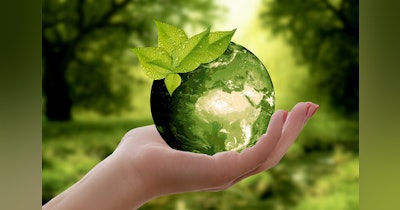In our fast-paced, modern world, the allure of pharmaceuticals and synthetic remedies often overshadows the profound healing potential of the natural world. However, for centuries, civilizations across the globe have turned to the earth's bounty for medicinal purposes, tapping into the rich reservoir of plant medicine. From ancient Ayurvedic practices in India to the traditional healing methods of Indigenous cultures, the use of plants for therapeutic purposes has been deeply ingrained in human history.
Plant medicine, also known as herbalism or botanical medicine, involves the use of various plant parts – leaves, roots, bark, flowers, and seeds – to promote health and alleviate ailments. These botanical remedies contain a complex array of compounds that interact with our bodies in ways that synthetic drugs often cannot replicate. From the soothing effects of chamomile tea to the potent anti-inflammatory properties of turmeric, plants offer a diverse pharmacopeia that addresses a wide range of health concerns.
One of the most remarkable aspects of plant medicine is its holistic approach to healing. Unlike many pharmaceuticals that target specific symptoms or organs, plant remedies often work synergistically with the body, addressing underlying imbalances and promoting overall wellness. Herbalists often emphasize the importance of treating the whole person – mind, body, and spirit – rather than simply alleviating symptoms. This holistic perspective aligns with many traditional healing systems, which view health as a state of balance and harmony within the individual and their environment.
Furthermore, plant medicine offers a sustainable and environmentally friendly alternative to conventional pharmaceuticals. Unlike synthetic drugs, which are often produced through industrial processes that generate pollution and deplete natural resources, herbal remedies can be cultivated in harmony with nature. By promoting the cultivation of medicinal plants and supporting sustainable harvesting practices, we can ensure that future generations have access to these invaluable resources.
Moreover, the resurgence of interest in plant medicine reflects a growing recognition of the limitations and potential dangers of relying solely on pharmaceutical interventions. As concerns about antibiotic resistance, opioid addiction, and other pharmaceutical-related issues continue to rise, many people are seeking out natural alternatives that offer gentler, safer solutions. Plant medicine, with its emphasis on prevention, gentle healing, and minimal side effects, has emerged as a compelling option for those looking to take control of their health and well-being.
However, it's essential to approach plant medicine with respect, knowledge, and caution. While many botanical remedies are safe and effective when used appropriately, some plants can be toxic or interact negatively with certain medications. Consulting with a qualified herbalist or healthcare professional is crucial to ensure safe and effective use of plant remedies, especially if you are pregnant, nursing, or have pre-existing health conditions.
In closing, plant medicine represents a time-honored tradition that continues to offer profound benefits in our modern world. By harnessing the healing power of nature's pharmacy, we can support our health, promote environmental sustainability, and reconnect with the wisdom of our ancestors. Whether sipping herbal teas, using botanical tinctures, or simply spending time in nature, incorporating plant medicine into our lives can enrich our physical, emotional, and spiritual well-being. As we strive to create a healthier and more sustainable world, let us not overlook the extraordinary gifts that the natural world has to offer.







